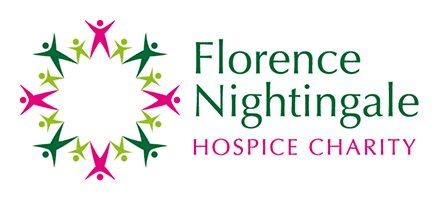
Trusts have been in existence for hundreds of years and they have increasingly become a modern cornerstone to solicitor-drafted Wills.
 Trusts have been in existence for the wealthy for hundreds of years and, with the increasing use of technology simplifying the preparation of such documents, it has also become a modern cornerstone to solicitor-drafted Wills for families.
Trusts have been in existence for the wealthy for hundreds of years and, with the increasing use of technology simplifying the preparation of such documents, it has also become a modern cornerstone to solicitor-drafted Wills for families.
We primarily recommend Family Trusts as giving a range of options to an individual wishing to make gifts, whether in their Will or during their lifetime. Those options include lending the capital to the beneficiaries consecutively “in turn” over the generations.
Trust structures are best explained in person if at all possible, hence why a personal service from a lawyer is nearly always advisable.
When should Trusts be considered?
When making gifts of money or value, Trusts should be considered. We would say that an individual making a gift in excess of say £10,000 in value ought to consider making that gift via a Trust. This applies to gifts made in Wills on death as well as to gifts made during someone’s lifetime.
It is therefore easy to see why Trusts have become so popular, as they apply to so many circumstances of gift-making or for asset transfers.
Why are Trusts useful?
In simple terms, Trusts protect the money or asset gifted or transferred, for the beneficiaries.
Why is protection desirable when making gifts?
Protection is desirable as there are a number of potential claimants against assets owned by individuals and families. Those potential claimants can be summarised as:
- “Second marriage” issues: preventing step-families receiving assets to the detriment of direct children. For example, a widow or widower remarrying and assets passing to a second spouse and, on their death, to the second spouse’s own children.
- Inheritance Tax on your estate assets and those you have inherited from others, on death.
- Divorce: former spouses who can claim a share of your assets and those you have inherited from parents or other relatives.
- Creditors and those to whom you owe money – who claim against the assets you own or have received in gifts or inheritances from others.
- Crystallizing wishes: to avoid changes in Wills at a later date that alter longstanding arrangements. Such as a widow(er) changing a Will just before death to benefit one child more than the other(s) when previously everything had been left equally.
- Third-party claims: alongside the above reasons for setting up Trusts, assets might also be protected from claims by third parties.
What are the main principles of Trusts?
A fundamental benefit of using Trusts is the ability to provide that gifts pass to consecutive beneficiaries “in turn”, ie making provision in a Will Trust for one particular beneficiary such as a spouse, then on the spouse’s death to make provision for those assets to pass down to a second set of beneficiaries such as children.
The other fundamental benefit is that Trusts protect the value of gifts for the beneficiaries in turn, ensuring that beneficiaries have full access to the assets but these assets are protected from outside third parties who cannot claim a share.
Trusts are excellent structures to protect assets until beneficiaries have reached a certain age or can protect assets for vulnerable beneficiaries or those with disabilities.
A common Trust used is a Discretionary Trust. The Trust comprises a series of legal documents. A Trust can create a “lifetime loan” of assets to beneficiaries in turn, such as a spouse for life, then children for their lives and so on for the lifespan of the trust (125 years).
How can I obtain information on Trusts or advice on their use?
If you intend to review your Will or make a gift in excess of £10,000 in value, we suggest you contact us to arrange a personal appointment with one of our lawyers.
Our Trusts team
We have an experienced team dedicated to advising on, setting up and administering Trusts, helping you to protect your assets. Our private client lawyers are well informed on the various Trust options available, and offer you advice tailored to your circumstances. We have experienced lawyers available for appointments at all our office locations.
Usman Khan LLB Hons Solicitor and Head of Private Client (Chesham & Amersham)
Johanna Knott BA SFE TEP Solicitor, member of STEP (the Society for Trust and Estate Practitioners) and Solicitors for the Elderly (Chalfont St Giles)
Lucy Pankhurst LLB Hons Solicitor (Stone)
Contact us
To make an appointment to discuss Trusts with a member of our friendly and responsive legal team please contact us:
info@bwksolicitors.co.uk or telephone us at 01494 773377 (Amersham/Chesham office), 01494 870075 (Chalfont office), or 01296 747151 (Stone office).
Or complete the form below
Share this page
We are accredited with





